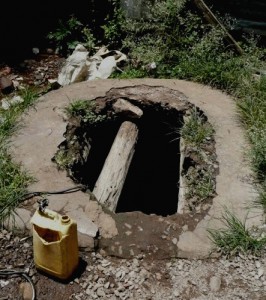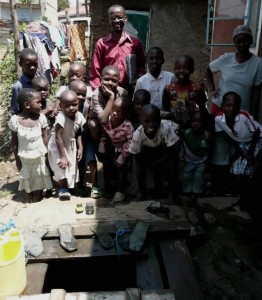Home
The Groundwater2030 project aims to reduce the health problems that result from consumption of contaminated groundwater in urban areas of Africa.
Drinking water in Africa
In many Sub-Saharan African cities, people are forced to consume water from shallow wells, because many urban areas lack piped water. Where piped water is available, taps may only be running infrequently. The shallow well water is often contaminated both microbiologically and chemically because of surrounding hazards, such as pit latrines. Its consumption can lead to health problems, such as diarrhoea and cholera.
It is unclear just how many people are affected, but an estimated 41.4 million people in urban Sub-Saharan Africa use protected wells, boreholes and springs as well as rainwater and standpipes. Sub-Saharan African cities and towns are growing rapidly, so the scale of this problem is growing.
The Groundwater2030 project
The Groundwater2030 project is measuring the long-term change in groundwater quality in one of these rapidly expanding cities, namely Kisumu in Kenya.
Since we last measured groundwater quality in the city more than a decade ago, the density of buildings and population has increased. This provides an opportunity to appreciate how far urbanisation can affect groundwater quality in the long-term and so understand the future risks of groundwater contamination as Africa’s smaller towns and cities continue to grow.
Estimates of how much groundwater is used in these neighbourhoods will help us to understand how much piped water would be needed to replace the current use of wells.
Our aims
By studying long-term changes in groundwater quality in urban Kisumu, we hope to get a better understanding of how changes in the density of contamination hazards like pit latrines affect water quality. By studying groundwater use, we hope to better understand how the wells across the city contribute to domestic water supply alongside piped water. In the longer term, we hope to look at methods for reducing groundwater contamination in urban areas, for example by lining pit latrines and septic tanks, or improving the lining and covers of the wells themselves.
Funding
The groundwater2030 project is a one year catalyst project, funded through a Natural Environment Research Council / Department for International Development programme Unlocking the Potential of Groundwater for the Poor (UPGro). Upgro is a new 7-year interdisciplinary programme that aims to build evidence to support sustainable groundwater use in Sub-Saharan Africa. The programme has three themes, of which the first is about understanding groundwater as a resource (both its quantity and quality). The second theme is about the institutions and frameworks that are used to manage groundwater, whilst the third theme looks at the impact of future trends such as urbanisation, climate change, and population growth on groundwater.

